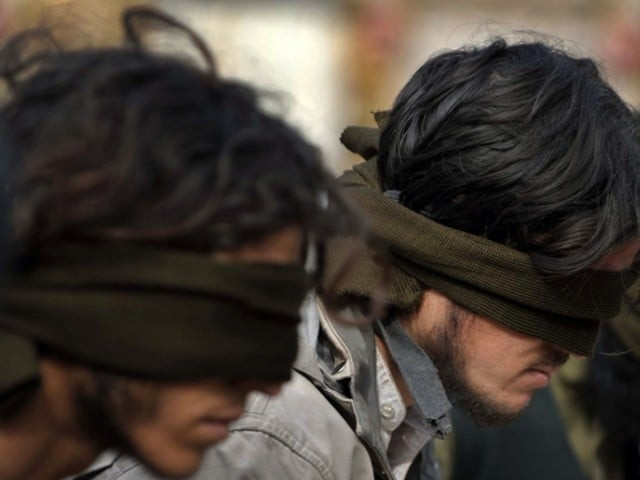Provinces asked to submit revised fourth schedule to ensure peace
NACTA calls for removing flaws and resubmitting the list by the end of July

NACTA calls for removing flaws and resubmitting the list by the end of July. PHOTO: REUTERS
The original list was handed over to Nacta last month.
The fourth schedule of the Anti-Terrorism Act (ATA) restricts the movement of a person placed on the list from the place of his permanent residence without the police’s permission. Such individuals are also bound to keep the police informed of the place of visit and the people they meet during their stay. The provinces have been asked to review their respective lists, remove flaws and resubmit the revised list before the end of this month, sources told The Express Tribune.
Some provinces did not provide the details as to what action is being contemplated against those mentioned in the fourth schedule and whether their movements are being monitored or not. Moreover, there are the names of some politicians and other known figures, whose names figure in the fourth schedule, sources further added.
The provinces were also responsible for informing Nacta whether the bank accounts of these individuals were being monitored and what sort of activities the funds in these accounts were being used for.
A few months ago, Interior Minister Chaudhry Nisar Ali Khan had decided to hand over the job of looking into the affairs of the fourth schedulers to Nacta after updating the same. There are more than 8,000 persons on the fourth schedule, with half of them belonging to Khyber-Pakhtunkhwa (K-P).
The matters pertaining to fourth schedulers are handled under the ATA and basically the provinces are responsible to maintain the lists. Currently, there is no consolidated list of the fourth schedulers in the country and there is no centralised mechanism to deal with them.
In February, the interior ministry decided to take serious action against the fourth schedulers, the members of the proscribed organisations and human traffickers.
The ministry has vowed to cancel the travel documents of those individuals and block their national identity cards.
Published in The Express Tribune, July 24th, 2016.



















COMMENTS
Comments are moderated and generally will be posted if they are on-topic and not abusive.
For more information, please see our Comments FAQ